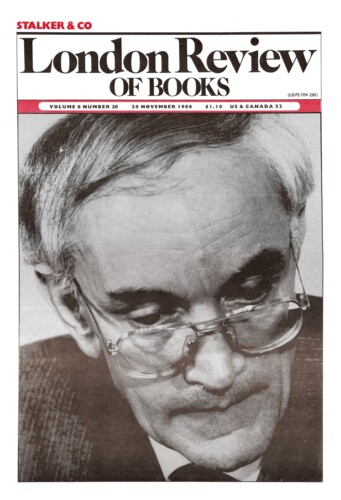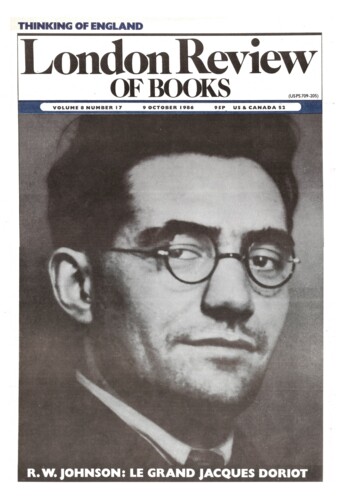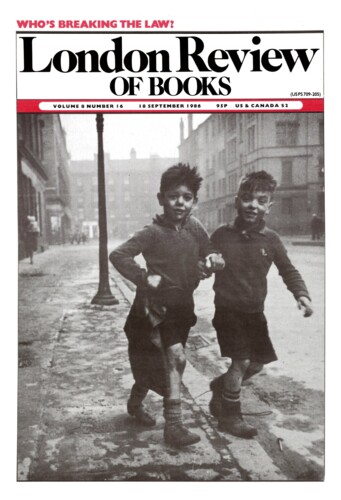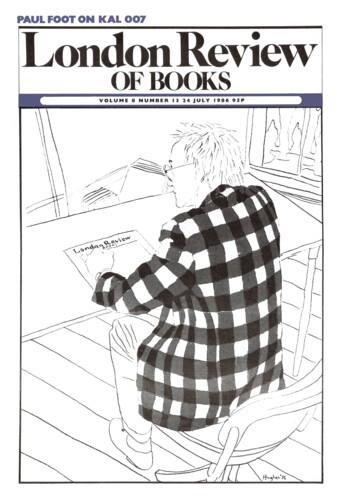An Enemy Within
Paul Foot, 23 April 1987
Which is the more subversive: a group of senior people in the security services who are giving secrets to the enemy, or a group of senior people in the security services who are working systematically to bring down the elected government here? The question would worry most democrats, but for the authors of books about the security services it is no worry at all. To a man, they are absorbed with the first danger. The second danger, they protest, does not exist. Or rather, if it does exist, it is best not to mention it.





